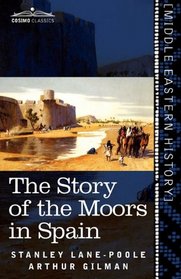The author is clear that the population that the Moors conquered in Spain was better off with the Moors than the Visigoths and tribes before them. Muslim belief decreed that slaves could not be mistreated and must be fed and clothed the same as the owner. Mohammad, when he explained the faith, knew he could not end slavery because it was too inbred into society. However, he sought to mitigate their suffering by not allowing Muslims to mistreat them. Also, Muslims allowed anyone to join their religion without difficulty; slaves were quick to join because it immediately removed them from slavery. Slaves weren't the only ones to convert; many people joined the Islamic faith for various reasons.
Because the Muslims did not try to convert the people of Andalusia, there were no religious rebellions during the almost 800 years the Moors ran their kingdom. One of the reasons they did not try to convert non-Muslims, as they preferred to get the tax (which was not burdensome) from Christians and Jews (that Muslims did not pay). After the upheaval was over, the citizens settled down and felt they were better off with the Moors than when the Goths or Romans had controlled their lives.
There's a fascinating chapter on the Christian martyrs, who were a group of Christian zealots hoping to die for their faith. The Muslims were not interested in killing them so the zealots pushed until they were punished. Before long, the Muslims tried to stop the senseless suicide-martyrdoms, but the Christians felt they were getting a one-way ticket to heaven for their blasphemy against Mohammed. They continued until Eulogius, a ringleader, forced the Muslims to put him to death. At that point, the massive hysteria dissipated.
The author details the life of El Cid, Rodrigo Diaz de Vivar, a Castilian knight. El Cid means "the Lord" and is what the Moors of the Iberian Peninsula called this famous warlord of medieval Spain. He was active in the 11th century and fought the North African Almoravides. Another chapter this author discusses in great length in the fall of Granada.
I would like to mention the reader, Gil Anders. He obviously did not have a good grasp of the English language because he mispronounced dozens and dozens of words. However, he seemed to have a better grasp of Arabic because most of those names seemed to roll off his tongue. I started out listening to this via audiotape but could not understand much of what was stated. I got a copy of the printed work and read alongside him and understood far better.
Because the Muslims did not try to convert the people of Andalusia, there were no religious rebellions during the almost 800 years the Moors ran their kingdom. One of the reasons they did not try to convert non-Muslims, as they preferred to get the tax (which was not burdensome) from Christians and Jews (that Muslims did not pay). After the upheaval was over, the citizens settled down and felt they were better off with the Moors than when the Goths or Romans had controlled their lives.
There's a fascinating chapter on the Christian martyrs, who were a group of Christian zealots hoping to die for their faith. The Muslims were not interested in killing them so the zealots pushed until they were punished. Before long, the Muslims tried to stop the senseless suicide-martyrdoms, but the Christians felt they were getting a one-way ticket to heaven for their blasphemy against Mohammed. They continued until Eulogius, a ringleader, forced the Muslims to put him to death. At that point, the massive hysteria dissipated.
The author details the life of El Cid, Rodrigo Diaz de Vivar, a Castilian knight. El Cid means "the Lord" and is what the Moors of the Iberian Peninsula called this famous warlord of medieval Spain. He was active in the 11th century and fought the North African Almoravides. Another chapter this author discusses in great length in the fall of Granada.
I would like to mention the reader, Gil Anders. He obviously did not have a good grasp of the English language because he mispronounced dozens and dozens of words. However, he seemed to have a better grasp of Arabic because most of those names seemed to roll off his tongue. I started out listening to this via audiotape but could not understand much of what was stated. I got a copy of the printed work and read alongside him and understood far better.




